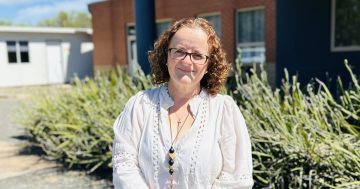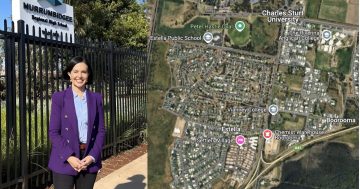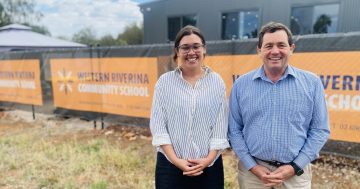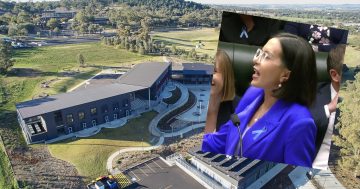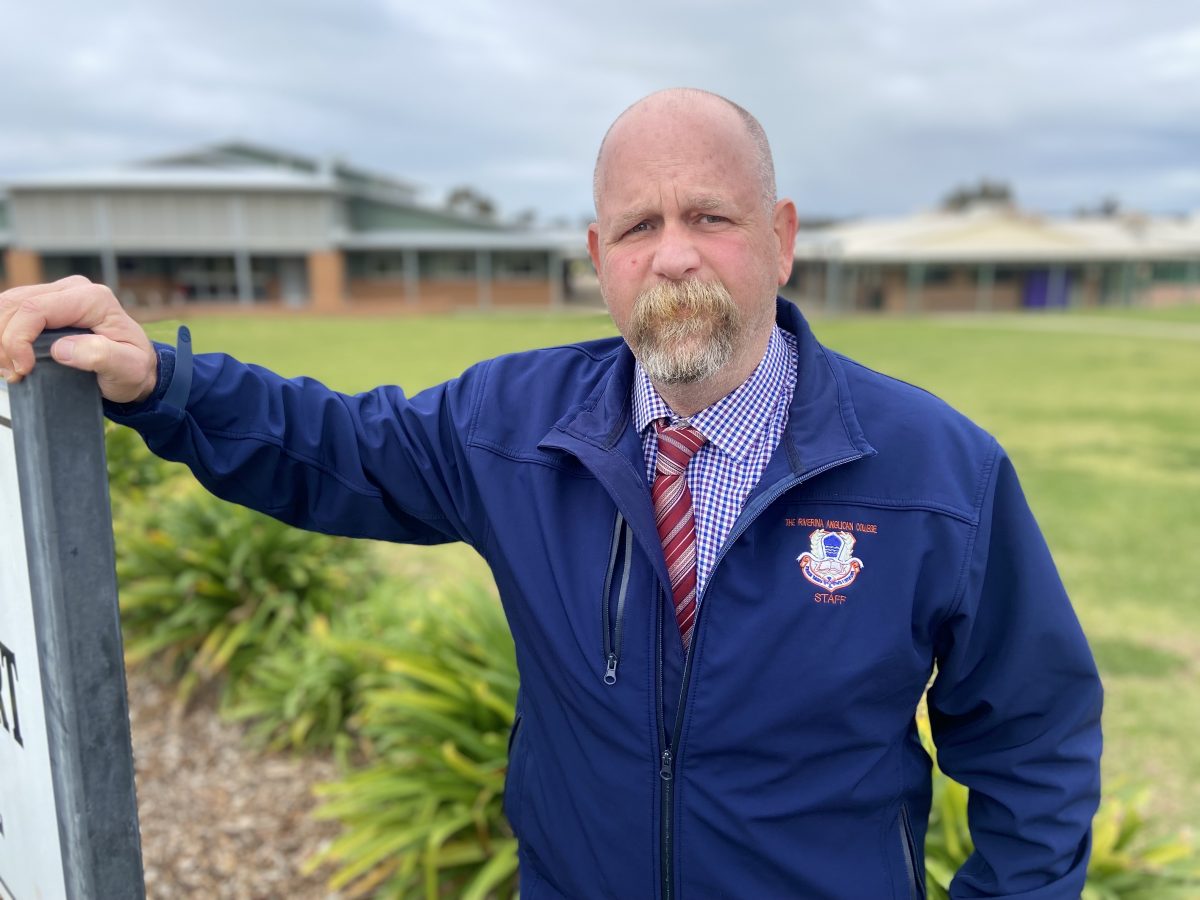
Anthony Heffer is proud to support kids from all backgrounds to find their path in life. Photo: Chris Roe.
Anthony Heffer’s path to his current role as the acting principal of The Riverina Anglican College (TRAC) was not the traditional one.
From growing up on a farm in West Wyalong to quitting his agricultural economics degree at Sydney Uni, his pre-teaching resume includes washing windows in Melbourne, working on gold drilling rigs and managing a restaurant before returning to study at Charles Sturt University to become an English teacher.
“To this day I don’t know why I chose economics,” Mr Heffer said with a laugh.
“After a couple of years, I wasn’t really enjoying being in Sydney or at uni, so I went into the next phase of my life, which was kind of a six-year ‘university of life’ experience.
“In light of my own journey, I’ve always believed that our key role is to create pathways for all sorts of students with all sorts of future goals, or not necessarily even very clear future goals, which is often the case,” he said.
Mr Heffer took the reins at TRAC just over a month ago, stepping up from his role as deputy following the surprise departure of principal Geoff Marsh in May.
Mr Marsh left with the school’s blessing to take up a principal’s position at Frensham in the Southern Highlands where his family is based.
“Geoff had an opportunity to be able to reconnect with his family and to reconnect with his old school and I really feel like the TRAC community understood that even though it was challenging,” he said.
“We were in a pretty good place, we’ve got a five-year strategic plan that we solidified last year and we’ve got a strong senior executive team.
“So even though it was relatively abrupt, we really felt like we could maintain the momentum that 2023 already had.”
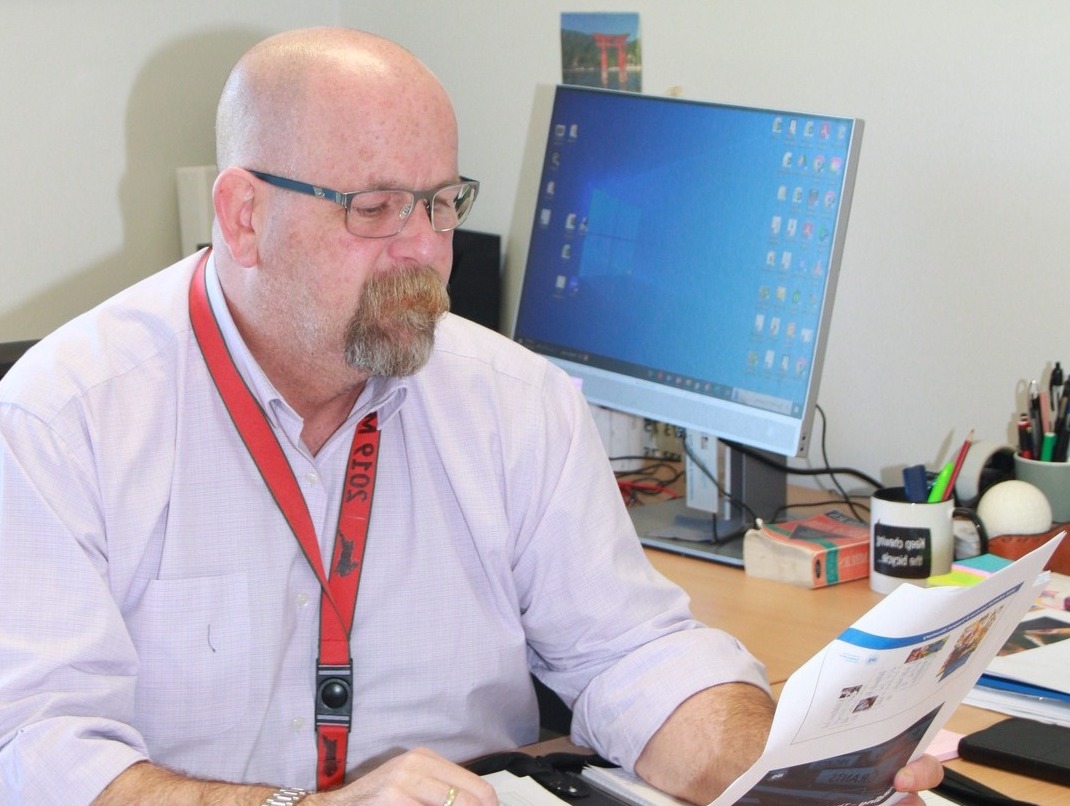
Anthony Heffer stepped into the principal’s role in May. Photo: TRAC.
After 13 years with the Department of Education working in public schools in the Riverina, Mr Heffer joined TRAC in 2013.
“I’d been working with a lot of low socio-economic schools and at first I felt like I was going to the other end of the spectrum,” he said.
“But I realised very quickly that the kids and their families really weren’t all that different.
“TRAC was a low-fee paying school, and we’re an Anglican school, but it’s also very inclusive of all sorts of different cultures and religions and people from all sorts of different backgrounds.”
He said that his own round-about journey to teaching ultimately proved to be an asset.
“School worked for me and I’d been pretty successful, but it didn’t mean that life was going to work for me or that university was going to work for me and that was a pretty painful lesson,” he said.
“But it’s certainly something that in retrospect, I can see has made me a far better teacher and made me far more empathetic towards the sort of journey that kids are facing.”
Mr Heffer said he was proud that the school offered a variety of options to support students as they prepared to head out into the world.
“I think sometimes we ask these 15- or 16-year-olds to forecast what their future looks like and my message to them is to be gentle on themselves and understand that many students don’t know where they want to head,” he explained.
“It’s about leaving doors open and we’ve got three clear pathways that are really designed to suit different types of students with different endpoints in mind: the International Baccalaureate, the HSC ATAR, and also the HSC, non-ATAR, which is really important for vocational education.
“I always ask, have we as a college done all we can to help that particular student reach whatever their pathway might be?”










